Dorothy tells her story
Dorothy Wilson Schieve joined the Army at age 18, in April, 1942. She served in England and was working in Paris during its liberation. She was discharged in May, 1945.
“I was born in Van, Texas, but my family moved east for an oil drilling boom when I was five. My dad was in charge of building the railroad. When I was 18, we were living in Texarkana, and I joined the Army. You were supposed to be 21.
“My brother was in the Air Force. He wasn’t going to get anything on me. I joined and said I was 21. And I got away with it. It was sort of iffy there for a while with my mother, but finally my brother, who was a flier, talked to Mother. He said, ‘She can convince them that she’s 28 instead of 18.’ And that was it. She refused keep me home any more.
“Jack and I grew up together and we were a twosome. I had another brother, James, 18 years older and a sister, Mary, 12 years older, but Jack was only four years older. We stuck together. I wouldn’t do something if Jack didn’t approve of it. If I had a date with a boy he didn’t approve, he’d say, ‘No, you’re not going to go with him,’ and I wouldn’t. I listened to Jack.”
In the Army
“I went to basic training in Louisiana. The place had been built for a Japanese camp, but it had never been used for that. I had been there four weeks, when on the P.A. system, they said, ‘Private Dorothy Wilson, report to the Commandant immediately.’ I thought, ‘They found out.’ I was scared to death. I went in and this lady said, ‘What I’m going to tell you, you can’t tell anybody. You can’t repeat it. We’re offering you Officers Candidate School. You have 24 hours to think about it. You’re excused.’ I had been in only four weeks.
“I left and went back to my class. The other girls asked me, ‘What did you do?’ I said, ‘I forgot to sign a paper.’ Later on that day, another announcement: ‘Dorothy Wilson, please report to the Commandant’s office.’ I thought, ‘They’ve caught me. They know how old I am.’ Another lady in uniform was there said, ‘What I’m going to tell you, you cannot repeat it. You have been chosen to go overseas. You have 24 hours to think about it.’ So that’s what I did. That’s what I chose.”
Overseas Duty in Europe
“And away I went the next day. They came in a truck. I was the only one going. I went to an Army base in southern Louisiana. There were men there, too. The women were enclosed in barbed wire and we could not go out singly. We had to have somebody walk with us. From there we got on a train that took us to St. Louis. We thought, ‘This is it.’ They got us off the train, marched us around, and then put us back on the train. So we knew ‘OK, this wasn’t it.’ And away we went to Massachusetts. We were there quite a while preparing to go overseas.
“We were in a convoy. It was foggy and you couldn’t see anything for days. There was a destroyer going around and around us trying to get us to go faster. We were the slowest. It took us forever and a day. When we finally arrived in England, they had built these high steps to get us off this boat, because it had no opening at the bottom. When we came into port, we rammed the heck out of that platform and it fell apart. So we didn’t have any way to get off the boat. If you’ve ever seen 20 girls cry—we were dirty, hungry. The ship turned around and went to another docking place and they finally got us off the ship. We were thrilled. Some commandant wanted us to go to breakfast and tell us how great it was for us to be there. All we wanted to do was sleep. It was 4:30 in the morning!
“I was assigned to the European Theatre Operation-U.S. Army. They decided to make the Supreme Headquarters there and had called back some retired generals. I became secretary to Colonel Smith. Eisenhower came from Africa and formed the Supreme Headquarters Allied Expeditionary Force, which was called SHAEF.”
Typing Code
“I was assigned there to Staff Message Control at Bushy Park. They had put tin Quonset huts there. There were four typists sitting at a table. It was all coded. My shift was 11 pm to 7 am. It was cold and damp. We lived there in Bushy Park in separate quarters. We had to type constantly because we had to fill in the whole time. If we didn’t have anything to type, we typed nursery rhymes, anything we could think of. We had to do that because the Germans could decode it. So we had to keep somebody typing for literally 24 hours. Each day there were three shifts. We had a hard time sleeping during the day because the other girls were coming back to the bunks when they got off.
“When I had a few days off, I took a trip to Scotland just for fun. When I got back I was re-assigned to London. In London I lived in an apartment and ate in restaurants. I was warm. I was in a typing pool. I was sent to Major Mayborn, who was head of public relations. He was known to have a little temper. He had had four secretaries come and go. When I was assigned there, they said, ‘Oh, another one!’ So I was assigned to him IF he wanted to keep me. I went down to his office. He asked me where I was from. I said, ‘Texas.’ He said, ‘I’m from Texas!’ And we hit it off great. He even gave me away when I got married.
“We five WACS stayed in an apartment building in London. We were getting the buzz bombs. We’d hear them go put-put-put. When you heard them click, you had 15 seconds to take cover. One morning about seven o’clock, I was at the lavatory in front of a window. I heard the put-put-put. My roommate, Jean, said, ‘Is that a motorcycle or a bomb?’ I had just seen a motorcycle go down the street and thought that’s what it was. But then we heard the click.
“The building had three floors. We were on the second. We tried to get under the beds. Jeannie was a bit plump. We got her head under the bed. There was an explosion. We were in the center, which was the safest place. All around us, fifty American soldiers were killed and 100 were injured badly. We could hear them screaming, ‘Help me, help me. I’ve lost my arm. Come get me!’ Jeannie and I helped them. When the bomb blew up there was dirt all over the place. They moved us out to Bushy Park until they found another place for us.”
“I would join up again. I would do it for my country.”
Dorothy continues her story after surviving the bombing of her London apartment:
“At Bushy Park, I met my future husband. A friend of mine was dating his roommate. One night, my friend said, ‘Come on, let’s go. They’re playing baseball.’ She said her friend would bring his roommate, George. I said no. She said, ‘Oh, come on. You don’t have anything else to do.’
“So I went. That’s how I met him. We dated a couple of times and then my group was transferred back to London. George had to take his company down to the south of England where the ships were going out to France. So I kind of forgot about him and we didn’t see each other for a long time.”
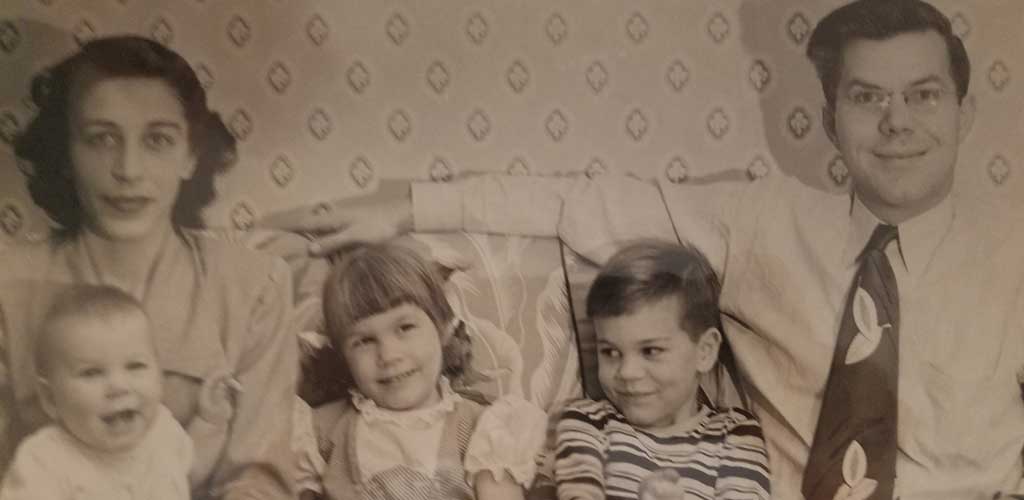
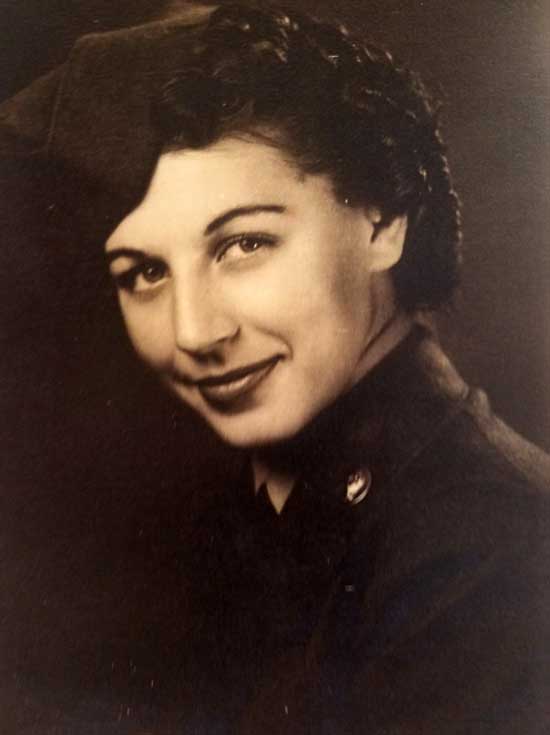
Dorothy Schieve
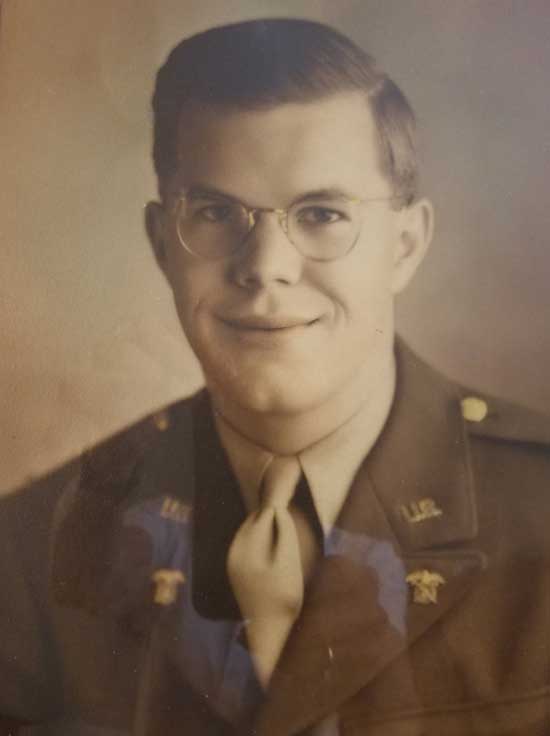
Dorothy’s husband, 1st Lt. George Schieve
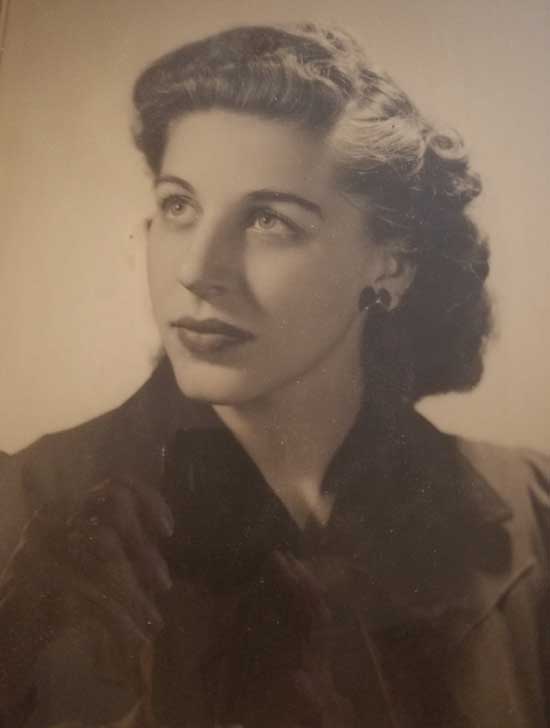
Dorothy Schieve
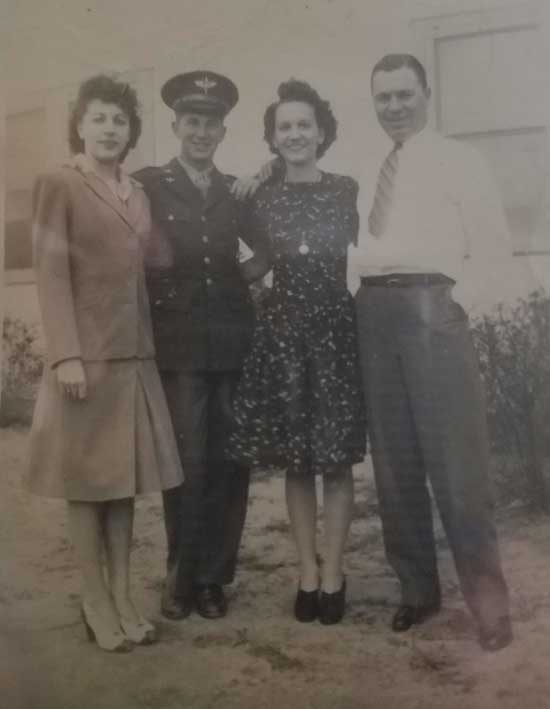
Dorothy Schieve and friends
Paris During Its Liberation
“The other WACS and I got the word ‘Pack your bags. Do not tell your lieutenant. Just pack and be ready to go. We had these musette bags and the big bags going bump-bump-bump down the stairs. The lieutenant heard all this and came out and asked, ‘Where are you going?’ We said, ‘We don’t know.’ She said, ‘You can’t go!’ We said, ‘Yes, ma’am, we can.’ And we got in the back of this truck and took off for the airport and flew to Paris. We flew very low, so if they shot us, we didn’t have very far to fall,” Dorothy joked.
“When we got to Paris, it was the day before Paris was liberated. We worked on the fourth floor of the American Express building, which was right across the street from the opera house. We heard a gunshot, so we went out to look. There was a ledge on the outside of the windows. We saw a French man with a gun chasing a German down the middle of the street. He had found him in the basement of the opera house. The Resistance were looking for Germans and shooting them. On the ledge, we were saying, ‘Come on!’ and cheering the Frenchman on. Major Mayborn came out and said, ‘What are you doing out here? You could be shot!’
George Schieve Reappears
“One night we were eating dinner at our hotel, the Scribe Hotel. There were five of us girls around the table. My friend, Jean, saw a man standing in the doorway. She said, ‘Dorothy, that man in the doorway is staring at you.’ I turned around and saw six foot-one inch George. He was stationed at Versailles at the time and had come to Paris.
“Versailles was where the main Supreme Headquarters was. George came over and talked to me. We made a date for the next night and we started going out again. He had a Jeep and a driver. So we went around, all over. He was a company commander, an officer; I was enlisted. We weren’t supposed to fraternize. But we enjoyed fraternizing very much. George was a commanding officer. He was head of the grocery store for generals.”
Working in Public Relations
“In the public relations office, we would get letters from Washington when the reporters wanted to come over from the U.S. to write stories about the war. It was Major Mayborn’s job to decide who could come and where they would be assigned and for how long. It was my job to type the orders, so every one of them had to come to my desk. I met Dorothy Kilgallen, Edward R. Murrow, and so many others. It was really interesting—this girl from Texas. By this time, I think I was nineteen! But they all had to come to me.
“One time I walked by General Allen’s office where he and Edward R. Murrow were talking.”
Dealing with Reporters Covering the War
“Some of the reporters were so nasty. There was one I would have loved to have thrown out. His wife was there. She was working for some magazine. She said something to me that was very complimentary, and her husband said sarcastically, ‘Oh, that’s her job.’ I thought, ‘This guy—I’ll get back at him if it’s the last thing I do.’
“After they left, I went to Major Mayborn and asked, ‘What are you going to do with him?’ He said, ‘Oh, I’ll send him out for six weeks or so.’ I told him what had happened, so Major Mayborn cut it short, so instead of six weeks, they could only stay maybe two weeks. Fortunately, I don’t know his name. But I got my revenge. His wife was so nice, though. She was interested in women, particularly in Germany. Whether she got to go to Germany, I don’t know.”
My Brother Jack, the Pilot
“My brother Jack was a B-17 pilot. I saw him a few times over there. His plane was shot down on the border of Germany and Holland. The crew members were taken prisoner by the Germans, but all the officers, including Jack, who was the pilot, were hanged. He, the navigator, and the bombardier. They had wanted my brother to teach because he’d been flying since he was 15 years old. But he wanted to fly.
“Jack had graduated from high school when he was 15 and went to University of Texas for one year. He came home at the end of the year and said, ‘OK, that’s it. I’m not going to go back.’ Dad said, ‘What do you want to do?’ Jack said, ‘I want to learn to fly.’ Every Saturday, Jack had taken our truck from this little town that we lived in, to Tyler, Texas, to get fresh veggies and bring them back for the grocery store that Dad owned. While he was in Tyler, he would go out to the airfield. The owners would take him up. They taught him to fly, but he couldn’t fly solo because he was too young. That was how he started flying.”
A Wedding in Paris
“Just before Christmas in Paris, we tried to buy gifts to send back to the States, but none of us spoke French, and the clerks in the stores didn’t speak English, so that was challenging.
“George and I got married in the American Cathedral in Paris, one week before the war ended. General Mayborn walked me down the aisle. We stayed in Paris until the war ended. We knew we would be separated when the war ended. George said, ‘I’m not going to let you go!’”
Dorothy and George and their family lived in Ann Arbor, Michigan. Dorothy worked as an administrative assistant at the University of Michigan Medical School. Sadly, George passed away in 1999. Dorothy later moved to Brevard, NC, to be near her son Ron and his wife.
When Dorothy received the book which includes her story, she said, “I would join up again. I would do it for my country.”
Dorothy Schieve passed away in January, 2020.
This book containing Dorothy Schieve’s story is available. Click the button below and you will be redirected to Amazon to purchase the book.
